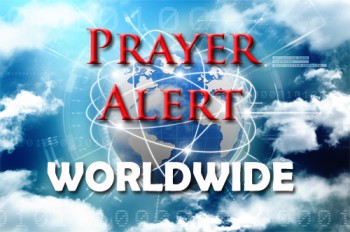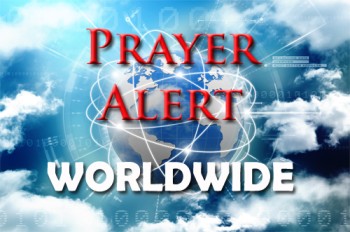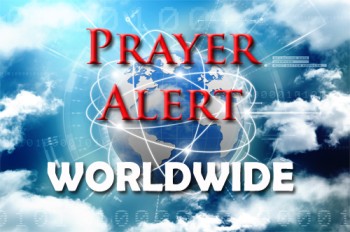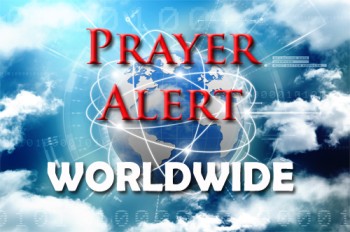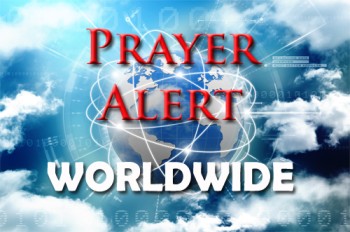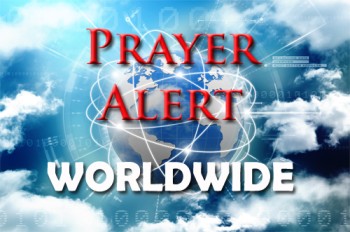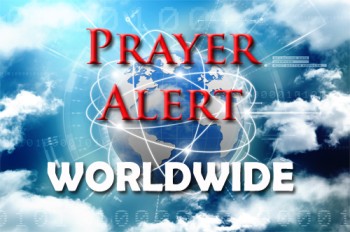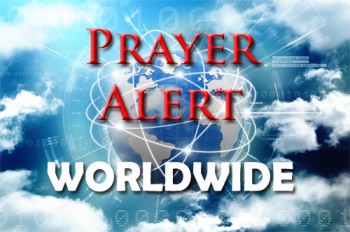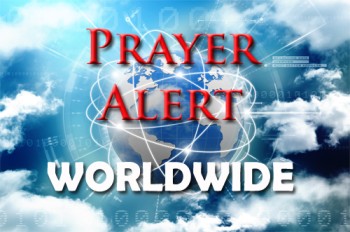Displaying items by tag: Latin America
Peru: congress ousts president after four months
There is continuing political instability in Peru after congress removed interim president José Jerí only four months after he was appointed. Secret meetings with businessmen and allegations of influence-peddling triggered public outrage and a parliamentary vote of censure. His departure makes him the latest in a series of leaders forced from office in recent years, leaving citizens weary and distrustful of institutions; they long for transparent leadership which addresses corruption, crime, and social unrest. The frequent changes of government have disrupted long-term planning and weakened confidence in justice and security. The situation highlights how fragile governance affects everyday life, especially for the poor who depend most on stability. Congress will soon name a new interim president, who will serve only until a new president is chosen by the people in a general election in April.
Venezuela: president says no to new presidential election
The president of Venezuela’s national assembly, Jorge Rodríguez, has said no presidential election will take place soon, stressing that the government’s priority is national stability. Following the controversial 2024 vote and the abduction of president Nicolás Maduro by the USA, vice president Delcy Rodríguez is now acting president. Authorities say they must rebuild institutions and reach agreement with opposition groups before setting an electoral timetable. A proposed amnesty law aims to release political prisoners and encourage reconciliation, though critics fear repression may continue in other forms. The re-arrest and house arrest of opposition figure Juan Pablo Guanipa has intensified concerns about civil liberties, while opposition leaders question whether genuine political participation will be allowed. The situation reflects a nation seeking normalcy amid deep division, uncertainty, and competing claims of legitimacy, highlighting the fragile path toward democratic stability and lasting reconciliation.
Argentina: Patagonia wildfires bring criticisms of Milei’s austerity policies
Wildfires are tearing through Argentina’s Patagonia region, burning vast areas of native forest and threatening irreplaceable ecosystems. More than 450 square kilometres have already been destroyed, including parts of a national park, a UNESCO World Heritage Site home to ancient alerce trees which can live for thousands of years. Thousands of residents have been evacuated as firefighters battle intense winds, high temperatures and difficult terrain. Fire crews report shortages of trained staff, aircraft and basic equipment, leaving them dangerously overstretched. Environmental groups warn that climate change is worsening fire conditions, making such blazes more frequent and severe. The crisis has intensified criticism of president Javier Milei’s aggressive austerity policies. His ‘chainsaw’ spending cuts this year have slashed the national fire management service’s budget by 71 percent. Milei, who has called climate change a ‘socialist lie’ and is considering withdrawing from the Paris Agreement, faces mounting pressure as the fires have now destroyed an area more than twice the size of Buenos Aires.
Venezuela: over a hundred political prisoners freed
More than a hundred people held as political prisoners in Venezuela have been freed, according to the human rights group Foro Penal (FP). Among them were FP lawyer Kennedy Tejeda and communications student Juan Francisco Alvarado. Tejeda, a lawyer and human rights defender, had disappeared after visiting detainees in Carabobo state on 2 August 2024 to provide legal assistance, and had since been held in Tocorón prison. While welcoming his return to his family, FP also urged the government to publish official release lists. Acting president Delcy Rodríguez promised to release prisoners detained under Nicolás Maduro following his refusal to concede the 2024 presidential election. She said this marked the beginning of a ‘new political moment’ which allowed greater political and ideological diversity. According to FP, there were 777 political prisoners in Venezuelan jails as of 19 January.
Guatemala: state of emergency after prison riots and ten police killed
A wave of coordinated gang violence which left ten police officers dead has prompted the government of Guatemala to declare a thirty-day state of emergency. The attacks began with riots at three prisons, where members of the Barrio 18 gang took guards hostage, and quickly spread to targeted killings of police in and around Guatemala City. Violence escalated after authorities regained control of a prison holding the gang’s leader, Aldo ‘El Lobo’ Duppie. In response, emergency measures now allow expanded police powers, including arrests without warrants for suspected gang members and restrictions on movement and demonstrations. The nation has mourned fallen officers amid heightened security and widespread fear. The unrest highlights ongoing struggles with organised crime, prison control, and public safety, as gangs continue to exert influence both inside prisons and on the streets.
Colombia: another church leader killed in targeted attack
A Colombian church leader has been killed in a targeted New Year’s Eve attack, highlighting renewed dangers facing pastors in the country. Pastor José Otoniel Ortega was shot repeatedly by armed attackers while celebrating with his family and later died from his injuries. Members of his congregation described him as a devoted servant who preached peace and lived out his faith with love. He is the eleventh church leader killed in Colombia since November 2024, according to CSW, which warns of rising hostility towards churches. Armed cartels often view pastors as threats because they oppose violence and illegal activity. CSW has urged the Colombian government to address the issue by offering additional protection to church leaders.
Venezuela / USA: Trump’s increasing pressure on Maduro
On 21 November, weeks of escalating threats, military posturing, and diplomatic tension culminated not in conflict but in a stark phone call in which Donald Trump reportedly issued Nicolás Maduro an ultimatum: leave Venezuela immediately or face the consequences. This shows that Trump is not easing pressure and may be edging closer to military action, despite earlier signs of potential compromise through envoy Richard Grenell’s negotiations which freed US detainees and reopened migrant returns. Analysts note that while advisers like Marco Rubio influence policy, Trump himself has long viewed Venezuela as unfinished business touching on his key concerns - migration, drugs, and China. Trump’s resort to a threatening phone call may in itself be a response to the Venezuelan armed forces’ refusal to buckle before the overwhelming US military presence. Experts warn that a ‘decapitation strike’ targeting Maduro is conceivable, with the justification that he is an illegitimate leader after stealing two elections. Observers say Trump is using intimidation to force concessions while leaving the door open to rapid escalation.
Honduras: manual recount necessary for presidential election result
The Honduran presidential election has become increasingly tense after the National Electoral Council (CNE) announced a full manual recount of the 30 November vote. Currently there is a wafer-thin margin between the two leading candidates, which has prompted the CNE to announce a ‘technical tie’; it is calling for patience while all the votes are counted manually. Donald Trump sharply criticised the process on social media, accusing the authorities of attempting to alter the outcome and warning that there would be ‘hell to pay’ if his preferred candidate, Nasry Asfura, is not declared the winner. Asfura, a right-wing former mayor, held a lead of just over 500 votes with more than half of ballots counted. His centrist rival, Salvador Nasralla, cited internal projections suggesting he was ahead but refrained from claiming victory. Whatever the final outcome, the election is a clear defeat for the country’s ruling left-wing, whose candidate, Rixi Moncada, only has 19% of the vote.
Brazil: tussle between conservationists and musicians over endangered trees
Tim Baker has spent more than four decades crafting world-class bows for violins and cellos - the very tools which, as he puts it, give musicians their ‘voice’. But now his longstanding craft is caught in the middle of an urgent conservation battle. Brazilwood, also known as pernambuco, is the prized, endangered timber used in most professional bows, beloved for its strength and resonance. With the tree’s population reduced by 84% due to centuries of overharvesting and ongoing illegal logging, Brazil is pushing for the highest level of international trade protection. Advocates say drastic action is needed to save the species, but musicians fear that tighter restrictions could ground performers, expose their bows to confiscation, and make global touring nearly impossible without complex permits. Conservationists and performers alike agree that the status quo is unsustainable, but they need to agree on a plan that protects both music and nature.
Brazil: hundreds of Indigenous protesters at COP30 demand real protection
On 11 November hundreds of Indigenous activists stormed the UN COP30 climate summit in Belém, demanding real protection for their lands and rights amid growing frustration over government inaction. The protests, led by Amazonian communities, erupted as president Luiz Inácio Lula da Silva promoted his administration’s commitment to Indigenous inclusion - claims protesters say ring hollow while oil drilling, logging, and mining continue to threaten the rainforest. ‘We can’t eat money’, said Gilmar of the Tupinamba community, voicing anger at the summit’s focus on climate finance over preservation. The demonstrations followed the arrival of the Yaku Mama protest flotilla, which sailed over two thousand miles to call attention to Indigenous leadership in environmental stewardship. Despite Lula’s rhetoric, Brazil’s state oil company has just received approval to begin exploratory offshore drilling near the Amazon’s mouth. This year’s meeting is the first to take place since the International Court of Justice ruled that countries must meet their climate obligations and that failing to do so could violate international law. Note: the four nations responsible for almost 50% of global pollution (Russia, China, India, and the USA) are not even attending COP30. The conference is a major focus for prayer, as churches become more and more aware of the climate crisis. For a link to the John Stott lecture on 20 November, which will focus on the challenges which the world is facing and a Christian response, see
